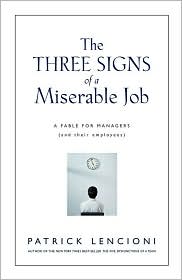Reading the book "Super Crunchers" - we learn about how regressions help companies make more accurate predictions about, for example, what a person might buy or prefer.
The book "Super Crunchers" made an example of predicting future wine prices based on a formula that accounted the number of rainy days in a growing season and other variables. The formula was very accurate. Some dating sites claim to have developed metrics about what a person might like in a mate based upon a set standard number of questions. Even if it's not what they think they would want. A lot of Web 2.0 sites are using regression data from consumer behavior to fine tune the site's services and offerings." - Highly recommended

An Invisible Heart is a play on words for the economic idea of the invisible hand that regulates the market. It is an endearing book that makes economics enjoyable and can help any lay person understand the major concepts, which make Economists stay in their fields. A well respected friend recommended it to me, and I am now recommending it to you.


Made to Stick was a follow up on Malcolm Gladwell's book the Tipping Point. The Tipping Point explains the Law of the Few (Connectors, Mavens and Salesmen), the Stickiness factor, and the power of context. Made to Stick explains the Stickiness factor. "The book's outline follows the acronym "SUCCES" (with the last s omitted). Each letter refers to a characteristic that can help make an idea "sticky":
* Simple — find the core of any idea
* Unexpected — grab people's attention by surprising them
* Concrete — make sure an idea can be grasped and remembered later
* Credibility — give an idea believability
* Emotion — help people see the importance of an idea
* Stories — empower people to use an idea through narrative
I would definitely recommend the book "Made to Stick" for any person who wants to understand how to make an idea be best presented to the world.

Rigged is Ben Mezrich's follow up to his widely popular "Bringing down the House" book. Described by Amazon as about a character who, "After conquering the hallowed halls of Harvard Business School, he enters the testosterone-laced warrens of the Merc Exchange, the asylumlike oil exchange located in lower Manhattan. A place where billions of dollars trade hands every week, the Merc is like a casino on crack, where former garbagemen become millionaires overnight and where fistfights break out on the trading floor.
This ordinary kid has traded Brooklyn for the gold-lined hotel palaces of Dubai. He keeps company on the decks of private yachts in Monte Carlo—teeming with half-naked girls flown in by Saudi sheiks—and makes deals in the dangerous back alleys of Beijing."
Unfortunately, Rigged falls way short of being necessary for the pages it was written on. It should have remained as a good journal article.

Why Beautiful People Have More Daughters is a great introduction to where Evolutionary Psychology has come in its short history. A mix between science, sociology, and econometrics. I enjoyed their "Savanna Principle" explanation, but unfortunately - the author's might use it to try to explain a little too much; from woman's lower pay to why sons reduce the chances of having a divorce.

The Pokerface of Wall Street was a let down after the 1st chapter. Aaron Brown does give some great comparisons to what wins in poker and trading. Most of it comes down to being about to identify opportunities, take and manage risk. Brown also throws off my interest on the non Texas Hold'em gambling examples.










